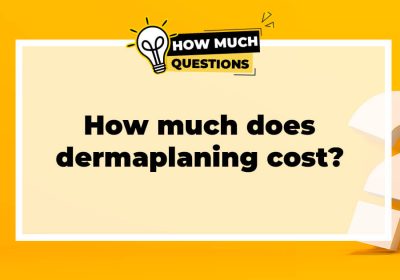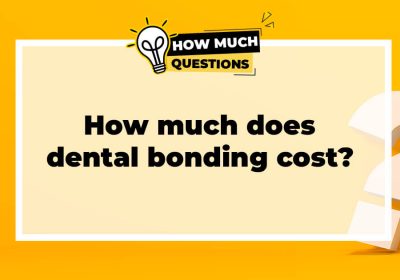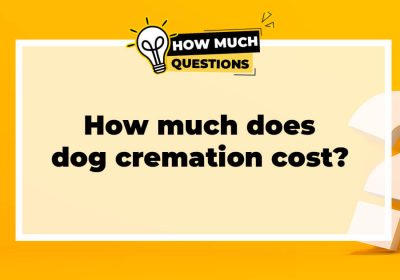
How Much Do Bonding Teeth Cost? - Pricing and Information Guide
Dental bonding is a popular cosmetic dentistry procedure that can help improve the appearance and functionality of your teeth. It is a versatile treatment option that can address various dental issues such as chipped or cracked teeth, gaps between teeth, tooth discoloration, and even minor misalignments. If you're considering dental bonding, one important factor to consider is the cost. In this article, we'll explore the factors that affect the cost of bonding teeth, the average cost you can expect, different types of dental bonding materials, additional costs and considerations, financing options, and tips for choosing a dental provider.
Factors Affecting Bonding Teeth Cost
Several factors can influence the cost of bonding teeth. Understanding these factors can help you get a better idea of what to expect in terms of pricing. Here are some key factors to consider:
1. Material Quality and Type
The type of material used for dental bonding can affect the cost. The two most common materials used are composite resin and porcelain veneers. Composite resin bonding is more affordable compared to porcelain veneers. However, porcelain veneers are known for their durability and natural appearance, which may justify the higher cost.
2. Extent of Tooth Damage or Decay
The severity of your dental issue can impact the cost of bonding teeth. If you have significant tooth damage or decay, additional procedures such as tooth cleaning or reshaping may be required before bonding can take place. These preparatory procedures can increase the overall cost.
3. Location and Reputation of the Dental Practice
The geographic location of the dental practice can also influence the cost of bonding teeth. Dental practices in larger cities or more affluent areas may have higher overhead costs, which can translate to higher prices for their services. Additionally, the reputation and experience of the dental provider can affect the cost. Highly skilled and reputable dentists may charge higher fees for their expertise.
4. Additional Procedures or Treatments Required
In some cases, dental bonding may need to be combined with other procedures or treatments to achieve the desired results. For example, if you have misaligned teeth, your dentist may recommend orthodontic treatment in conjunction with bonding. These additional procedures can increase the overall cost.
Average Cost of Bonding Teeth
The cost of bonding teeth can vary depending on the factors mentioned above. On average, the cost of dental bonding in the United States ranges from $300 to $600 per tooth. This price range is for composite resin bonding, which is the more affordable option. Porcelain veneer bonding, on the other hand, can cost between $800 and $2,500 per tooth. It's important to note that these figures are approximate and can vary depending on your specific circumstances and location.
Regional variations can also impact the cost of bonding teeth. In areas with a higher cost of living, such as major cities, you can expect to pay more for dental services compared to rural or less densely populated areas. Factors such as local competition, supply and demand, and the overall economic climate can also influence regional pricing.
Types of Dental Bonding Materials
There are two primary types of dental bonding materials: composite resin bonding and porcelain veneer bonding. Let's take a closer look at each:
Composite Resin Bonding
Composite resin bonding is a popular and affordable option for dental bonding. It involves applying a tooth-colored resin material directly to the tooth surface, which is then shaped, hardened, and polished to match the surrounding teeth. Composite resin bonding is known for its ability to blend seamlessly with your natural teeth.
The cost of composite resin bonding typically ranges from $300 to $600 per tooth. Factors that can affect the cost include the size of the bonding area, the complexity of the
procedure, and the location of the tooth.
Porcelain Veneer Bonding
Porcelain veneers are thin shells made of porcelain that are custom-made to fit over the front surface of your teeth. They provide a natural and aesthetically pleasing result. Porcelain veneer bonding is often used to address more extensive cosmetic issues such as severe discoloration, significant tooth damage, or misalignment.
Porcelain veneer bonding is a more costly option compared to composite resin bonding. The price can range from $800 to $2,500 per tooth. The higher cost is justified by the durability and lifelike appearance of porcelain veneers.
Additional Costs and Considerations
In addition to the primary cost of bonding teeth, there are several other factors to consider that may contribute to the overall expenses. These include:
Consultation Fees and Diagnostic Tests
Before undergoing dental bonding, it's common to have an initial consultation with the dentist. Some dentists may charge a consultation fee, which is usually separate from the actual procedure cost. Diagnostic tests such as X-rays or dental impressions may also be necessary to assess your oral health and determine the appropriate treatment plan.
Preparatory Procedures (Tooth Cleaning, Reshaping)
Depending on your specific case, your dentist may recommend preparatory procedures before bonding. These can include tooth cleaning to ensure optimal bonding conditions or tooth reshaping to create a more even surface. These additional procedures can add to the overall cost.
Anesthesia and Sedation Options
For some patients, local anesthesia or sedation may be necessary to ensure a comfortable and pain-free experience during dental bonding. If you opt for these options, there may be an additional cost involved.
Follow-up Appointments and Maintenance Costs
Following the dental bonding procedure, you may require follow-up appointments to assess the results and make any necessary adjustments. It's important to factor in potential follow-up costs and any maintenance expenses associated with bonding materials, such as periodic polishing or replacement.
Financing Options and Insurance Coverage
Dental insurance coverage for bonding procedures can vary depending on your specific plan and the insurance provider. Some dental insurance plans may cover a portion of the cost, especially if the bonding is considered medically necessary. However, cosmetic bonding for purely aesthetic purposes may not be covered.
If you don't have dental insurance or if your insurance coverage is limited, there are alternative financing options available. CareCredit, for example, is a popular third-party financing program specifically designed for healthcare expenses. Many dental practices offer payment plans or financing options to help make dental procedures more affordable.
Additionally, dental discount programs and savings opportunities, such as dental memberships or loyalty programs, can provide discounts on various dental treatments, including bonding.
Tips for Choosing a Dental Provider
When it comes to dental bonding or any dental procedure, it's crucial to choose a reputable and experienced dental provider. Here are some tips to help you make an informed decision:
- Research and select a reputable dental professional: Look for dentists who specialize in cosmetic dentistry and have extensive experience in dental bonding procedures.
- Consider reviews, qualifications, and experience: Read patient reviews and testimonials to gauge the satisfaction level of previous patients. Look for dentists who are qualified, experienced, and have a proven track record of successful dental bonding treatments.
- Seek cost estimates and compare prices: Schedule consultations with multiple dentists to obtain cost estimates and compare prices. However, keep in mind that price should not be the sole determining factor. It's important to consider the dentist's expertise and the overall quality of care provided.
Conclusion
Dental bonding can be an effective and affordable way to enhance your smile and address various dental concerns. The cost of bonding teeth can vary depending on factors such as the material used, the extent of tooth damage, the location of the
dental practice, and any additional procedures required. On average, composite resin bonding ranges from $300 to $600 per tooth, while porcelain veneer bonding can cost between $800 and $2,500 per tooth.
It's essential to consult with a dental professional to assess your specific needs and receive an accurate cost estimate. Remember to consider additional costs and financing options, as well as choose a reputable dental provider. By understanding the factors influencing the cost of bonding teeth and exploring your options, you can make an informed decision about improving your smile.
Disclaimer: The information provided in this article is for informational purposes only and should not be considered as professional advice. It is always recommended to consult with a qualified dentist or healthcare professional for specific guidance and information regarding dental procedures and costs.
Frequently Asked Questions (FAQ)
How much does dental bonding cost on average?
The average cost of dental bonding can range from $300 to $2,500 per tooth. However, the final price depends on various factors such as the material used, extent of tooth damage, and location of the dental practice.
What factors influence the cost of bonding teeth?
Several factors can influence the cost of bonding teeth, including the type of bonding material used, the complexity of the procedure, the dentist's experience, and the location of the dental practice.
Are there any financing options available for bonding teeth?
Yes, there are financing options available for bonding teeth. You can explore options such as third-party financing programs like CareCredit or inquire with your dental provider about payment plans to help make the cost more manageable.
How long does dental bonding last?
The longevity of dental bonding can vary depending on factors such as oral hygiene practices, eating habits, and the type of bonding material used. On average, composite resin bonding can last between 5 to 10 years, while porcelain veneer bonding can last up to 15 years or more with proper care.
Does dental insurance cover the cost of bonding teeth?
Dental insurance coverage for bonding teeth varies depending on the specific plan and provider. Some dental insurance plans may cover a portion of the cost, especially if the bonding is deemed medically necessary. However, coverage for purely cosmetic bonding may be limited.
Can bonding be used to fix chipped teeth?
Yes, dental bonding can be an effective solution for repairing chipped teeth. The bonding material is applied to the damaged area, shaped to match the natural tooth, and then hardened to restore the tooth's appearance and function.
Is dental bonding a painful procedure?
Dental bonding is typically a painless procedure. In most cases, local anesthesia is not required unless the bonding is being used to fill a cavity. The process involves minimal tooth preparation, and patients usually experience little to no discomfort.
How does dental bonding compare to other cosmetic dental procedures?
Dental bonding is a more affordable alternative to other cosmetic dental procedures such as veneers or crowns. It provides a quick and effective solution for addressing minor cosmetic issues, but it may not be as durable or long-lasting as some other options.
Can bonded teeth be whitened?
Composite resin bonding material is not responsive to traditional teeth whitening methods. If you're considering teeth whitening, it's recommended to have the whitening treatment done before dental bonding to ensure a consistent color match.
How can I maintain bonded teeth?
To maintain bonded teeth, it's important to practice good oral hygiene by brushing twice a day, flossing regularly, and scheduling regular dental check-ups. Avoid biting hard objects or using your teeth as tools to prevent damage to the bonding material.
Please note that the answers provided are for informational purposes only and should not replace professional dental advice. It's best to consult with a qualified dentist to receive personalized guidance and recommendations for your specific dental needs.
If you want to know other articles similar to How Much Do Bonding Teeth Cost? - Pricing and Information Guide you can visit the category Healthcare and Wellness.
- Factors Affecting Bonding Teeth Cost
- Average Cost of Bonding Teeth
- Types of Dental Bonding Materials
- Additional Costs and Considerations
- Financing Options and Insurance Coverage
- Tips for Choosing a Dental Provider
- Conclusion
- Frequently Asked Questions (FAQ)
- How much does dental bonding cost on average?
- What factors influence the cost of bonding teeth?
- Are there any financing options available for bonding teeth?
- How long does dental bonding last?
- Does dental insurance cover the cost of bonding teeth?
- Can bonding be used to fix chipped teeth?
- Is dental bonding a painful procedure?
- How does dental bonding compare to other cosmetic dental procedures?
- Can bonded teeth be whitened?
- How can I maintain bonded teeth?
Leave a Reply







You might be interested in